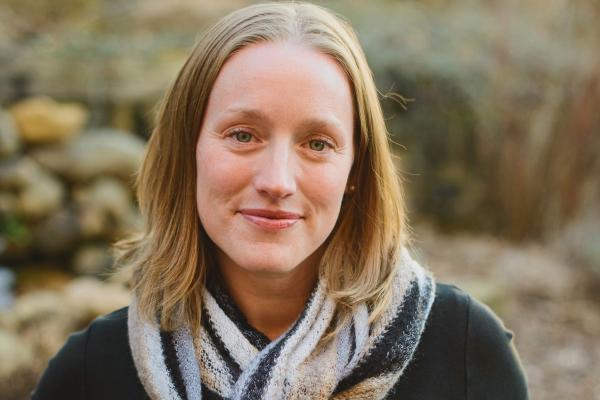Psych professor writes simple science — by writing for kids

Ashleigh Maxcey, a visiting associate professor in the Department of Psychology, has co-authored 15 peer-review publications and penned an additional eight more on her own, but she still encounters one of the biggest problems when it comes to communicating her research: writing simply.
This past summer, Maxcey challenged students in her undergraduate cognitive psychology class at Vanderbilt University to write a research paper in the style of the journal Frontiers for Young Minds, an open-access scientific journal edited by and for children. One of her student’s articles, “A Face Scavenger Hunt: Why We See Faces in Objects without Faces,” was published in the journal this past December. She and another student also have an article on eyewitness testimony currently under review.
Maxcey said the assignment tested the students to reduce a complex topic to the simplest terms and ideas, and also had them consider why a young person would care about the topic.
“Scientific writing is different than other types of writing and can be hard to learn. Many students end up trying to sound smart and use jargon in their papers, but it comes across as someone who has no idea what they are talking about,” Maxcey said. “The exercise of writing for Frontiers for Young Minds encourages students to really grasp their topic so well that they can write about it simply.”
Writing a scientific article gave the students a firsthand look at the publishing process. They were fully involved in the editorial process, responded to reviews and tweaked their papers to make sure they were the best they could be. Maxcey thoroughly enjoyed helping students write the papers, many of which she was able to share with her own children.
Writing for Frontiers for Young Minds also revealed a general need for comprehensible science articles. When Maxcey showed the published article to some of her undergraduate students at Ohio State, they asked why all scientists aren’t trying to write that directly.
.dailypost {background-color:#000; padding:30px;color:#fff;font-family:"capita";font-size: 1.25em;font-weight: 400;} .clicktotweet {float: right; text-align:right;}
A kid-reviewed scientific journal is teaching @OhioState students about the value of coherent science writing. #ASCDaily
From her experience, Maxcey has found that the complex language traditionally used in scientific writing dissuades many students from wanting to do research by the time they get to college. By writing for younger audiences, such as those who read Frontiers for Young Minds, Maxcey hopes to help aspiring scientists become more open to research.
“I don’t know what happens before students come to college, but they often come in with this bias against research and yet a passion for a topic. There is this huge misunderstanding that all you need is a question you care about and you are likely to enjoy research,” Maxcey said. “I think it’s important to try and reach out to students before college and get them excited about the research process to try and circumvent this misunderstanding."
While Maxcey has recognized the push to help the general public have better access to and understanding of what scientists do, the value put on what scientists are doing is still being overlooked. Given that a large portion of research in the United States is government-funded, Maxcey said it’s important for voters and elected officials alike to understand and value the work of scientists.
“The burden partially falls on the scientist to reach out to the general population to help them understand and appreciate what scientists are doing and why they should want to continue funding advancements in science,” Maxcey said. “I think submitting to Frontiers for Young Minds — and then making sure that your local schools know about this free journal — is a great step in the right direction.”
Hannah Smith, fourth-year journalism major
